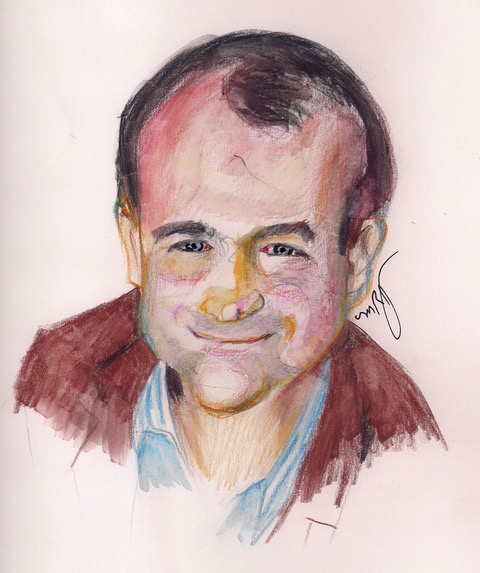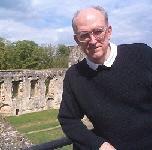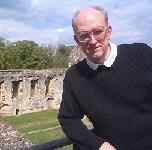Jack Kohl’s erudite take on this rich pandemic period
Jack Kohl is an American pianist and writer with three novels and two essay collections to his credit. His new collection, From the Windows of Diligence: Essays from a Standing Pianist, has drawn critical acclaim in the U.S. and Europe. In these reflections, he examines the power of ‘hack pianism’, the metaphor of running vs. the piano, and the ‘hidden gift’ of the Covid virus pandemic on solitary practicing. Robert Beattie spoke to Kohl about his music training and how he made the transition from pianist to author. (This edited interview was first published on www.Seenandheard-international.com and is reproduced with permission.)
Robert Beattie: What is your background as a concert pianist and how have you made the transition to the printed word?
Jack Kohl: I studied at the Pre-College Division of the Juilliard School and completed a Bachelors in piano performance at Queens College/City University of New York, and a Master’s and Doctorate in piano performance from the University of South Carolina.
So you started life as a pianist?
Yes, but I wrote my first novel long before completing my doctorate. It remains in manuscript. After taking my doctorate, I hoped to secure an academic position at a university or conservatory, but I gave up on that quickly after finding it very hard to secure interviews.
How active are you today in piano performance?
I have spent a large part of my professional life working in theatre and cabaret productions where my sight-reading skills serve me well. I am also an inveterate journal keeper, and like my great hero Ralph Waldo Emerson, I have spent time indexing these journals. Much of the writing is about music and playing the piano or about life outside of music. But they can all be seen to overlap when one flips back and forth between the scribbled pages – there one hopes the ‘golden brothers’ sometimes join hands, as Mr. Emerson observes.

Are you still finding opportunities to play?
Not in these times. All of the playing jobs I was doing evaporated as a result of public venues being closed down because of the current public health crisis. When this happened I went back into the journals, as these provided a quarry of material from which I could draw on to address the present.
In your first collection of essays, Bone over Ivory, you wrote essays on Franz Liszt and Charles Ives. What attracted you to these composers ?
I see Liszt’s Piano Sonata and Ives’s ‘Concord’ Sonata as very closely related, given the way they treat the evolution of motivic material – but also because Liszt has always seemed to me a sort of Transcendentalist, a religio-literary-philosopher in only mild disguise.
How did Liszt and Ives enter your life?
I first became aware of the Liszt Sonata in my early teens through a recording of the work by Agustin Anievas, and ever since that time I have been fascinated by this great work and have performed it on a number of occasions. Ives’s ‘Concord’ draws on extra-musical material in many respects, in particular the great American writers associated with Transcendentalism, such as Emerson and Thoreau.
You seem interested in your extra-musical life …
Many of the essays in the collection use, as starting points, my reflections on my life as a freelance pianist. When one plays in theatre pits and for auditions, one walks away from the job with all sorts of suggestions of metaphorical grist that last long after the sounds of the day are gone – as in the essay ‘Coleridgean Reason and the Hack Pianist’ in Bone over Ivory. I steal, plagiarise, from my own journal entries about these experiences. Some of the essays look at how very abstract ideas, such as how musical forms (sonata-form, for example) can import expectations into one’s extra-musical life, even in romantic relationships (as in ‘A Transcendentalist’s Love Story’); or on how to respond to errors in daily life by considering one’s pianistic experience of grappling with wrong notes, as in the essay ‘Wrong Notes: Principles over Sequence’ – which was my first effort to preach a sermon of philosophical Idealism, a faith in intuitive ideas that takes shape in great part from countless solitary hours in the gristmill of the practice room.
How do you view the cancelation of recitals and concerts during lockdown periods? Is there an upside?
We are besieged at this time with the mantra: ‘We are all in this together’. But the iron grist of philosophical Idealism hinted at by bouts of unremitting solitary practice at the piano – of applying oneself diligently to any resistant material in any honourable trade – will be that things are best when one is ‘in’ something completely alone. The pandemic has given thoughtful musicians a hidden gift: for a time, the threat has been removed of having to maintain the outer result of one’s trade for the pleasure of a mildly attentive mob, and one is free for a time to consider the silent and grander grist rendered to the solitary self, the soul and reach of which is always wider than that of any census. With concessions to his necessary search for bread and a roof, I submit that the pianist who thinks most highly of the piano’s grandest metaphorical implications will concede that this pandemic period is rich in proportion to the number of his cancelled gigs.
Explain the vibratory resonance you have perceived during the Covid virus siege.
I have always contended that it is when the piano’s keys push back after having been pushed down that the greatest effects are realised; then it is that the player’s skeleton becomes as a better iron frame than the piano’s. All external matter, all objects – whether in the forest or on a city street – then become as strings wired to the iron ribs surrounding the soundboard of his heart, and the more unlike the adjacent crossed strings that come his way, then the more vibratory the resonance of metaphor: yielding a poetry of insight richer than even music itself. My newest book of essays, completed under the virus siege, From the Windows of Diligence, expresses unremittingly this conviction.
I note that in one of the essays you describe yourself as a hack pianist. Why do you describe yourself in these terms?
Many of my friends have challenged me on the use of the word hack for myself! But I do not think the word a diatribe. I mean it in the sense that all ostensibly lowbrow work and extra-musical work can be the highest work of the pianist whose study of the piano has turned him principally into a Metaphor Hunter.
I have taken on an enormous range of playing jobs since leaving college. I imagine many pianists and musicians find themselves in this position when they leave school. It is how I have made my living at times, but it has also created a body of material that I use – upon which I depend – in my writing. In regional theatre and cabaret settings, for example, there is a Dickensian panoply of characters who one can draw upon (without end!) when writing fiction – and also in expository writing, as in my essay ‘Backphrasing: Musical Theater and the Newtonian Clock’ in my new essay book. Cover artist – Freiman Stoltzfus
I can well imagine that. Your most recent series of essays is entitled, From the Windows of Diligence. Where does this phrase come from?
The phrase is from the ‘Beauty’ chapter of Emerson’s 1836 book Nature. At that point, Emerson is exploring the notion that beauty in nature is best viewed obliquely, or through or across a sort of hurdle formed by the focus of our best labours. ‘Go forth to find it, and it is gone: It is only a mirage, as you look from the windows of diligence.’
You come back to the sobriquet “hack pianist”.
Yes, I invoke the word hack for myself as a pianist because I have found that even the most isolated and mundane physical drudgery of a practice day’s repetitions have shown me some of the greatest and most refractory windows of diligence, windows that have been my own personal skeleton key to the fighting faith of an early nineteenth-century code of philosophical Idealism. I remember looking over my shoulder through the small, square, windows of countless practice rooms in my life and thinking that perhaps the better parade was passing me by outside. But if a thoughtful and driven young fellow enters the solitary practice room for years, something much better than a virtuoso may emerge: rather a man with a faith in the illusory nature of matter and circumstances – a sort of Jedi rather than yet another inspired organ grinder’s monkey. I explore such grand implications of a pianist’s solitary hours in the essay ‘Practice Room’ in From the Windows of Diligence.
The essays describe you going for runs around the Makamah Forest in Long Island. How do these runs link to music and the different keys which you describe in the essays?
I decided to follow the analogy between running a circuit on a forest trail and practicing scales around the Circle of Fifths. I know from my years in the practice room that a pianist’s physical traversal of the Circle of Fifths creates a ritual of tactile and sonic wall-building between the consciousness and the vagaries of the illusory physical world outside the room. I thought that if I could transfer the Circle of Fifths ritual, if I could apply some of the metaphorical perceptions I have gathered each day from its physical implications of moving around the keyboard, to moving at a run around a circuit trail in a small forest in my home village – and to see if a similar sort of wall-building around the consciousness might appear there in the woods, too, and dissolve even Nature herself to a degree: to cross the window yet maintain my diligence on Nature’s side of the glass, if you will – to become as if a standing pianist, one practicing while running in the midst of living oaks rather than sitting before a single, dead, spruce soundboard; well, I thought that if I could do that, then I might have done something, at last.
You relate C-major to the flattest area of your forest. Was that the starting point for your metaphor?
I started by trying to forge a link between the tactile sense of playing in different keys on the piano keyboard with running over different areas of the Makamah Forest’s main loop trail. So, for example, the flattest area of the forest reminded me of the key of C-major – for it is in C-major that a pianist confronts all the metaphorical implications of an unremittingly smooth and level sense of plane. I thought I would import a different sense of Circle to the woods than one finds in The Magic Circle of Walden. But I sought to escape the circuit chain of my own metaphor in the end, as well.
------------------
Links to other works about Jack Kohl:
Jack Kohl's striking new collection on music and literature by Michael Johnson
Author Jack Kohl just ‘stole it from life’ by Michael Johnson
This article is brought to you by the author who owns the copyright to the text.
Should you want to support the author’s creative work you can use the PayPal “Donate” button below.
Your donation is a transaction between you and the author. The proceeds go directly to the author’s PayPal account in full less PayPal’s commission.
Facts & Arts neither receives information about you, nor of your donation, nor does Facts & Arts receive a commission.
Facts & Arts does not pay the author, nor takes paid by the author, for the posting of the author's material on Facts & Arts. Facts & Arts finances its operations by selling advertising space.





















